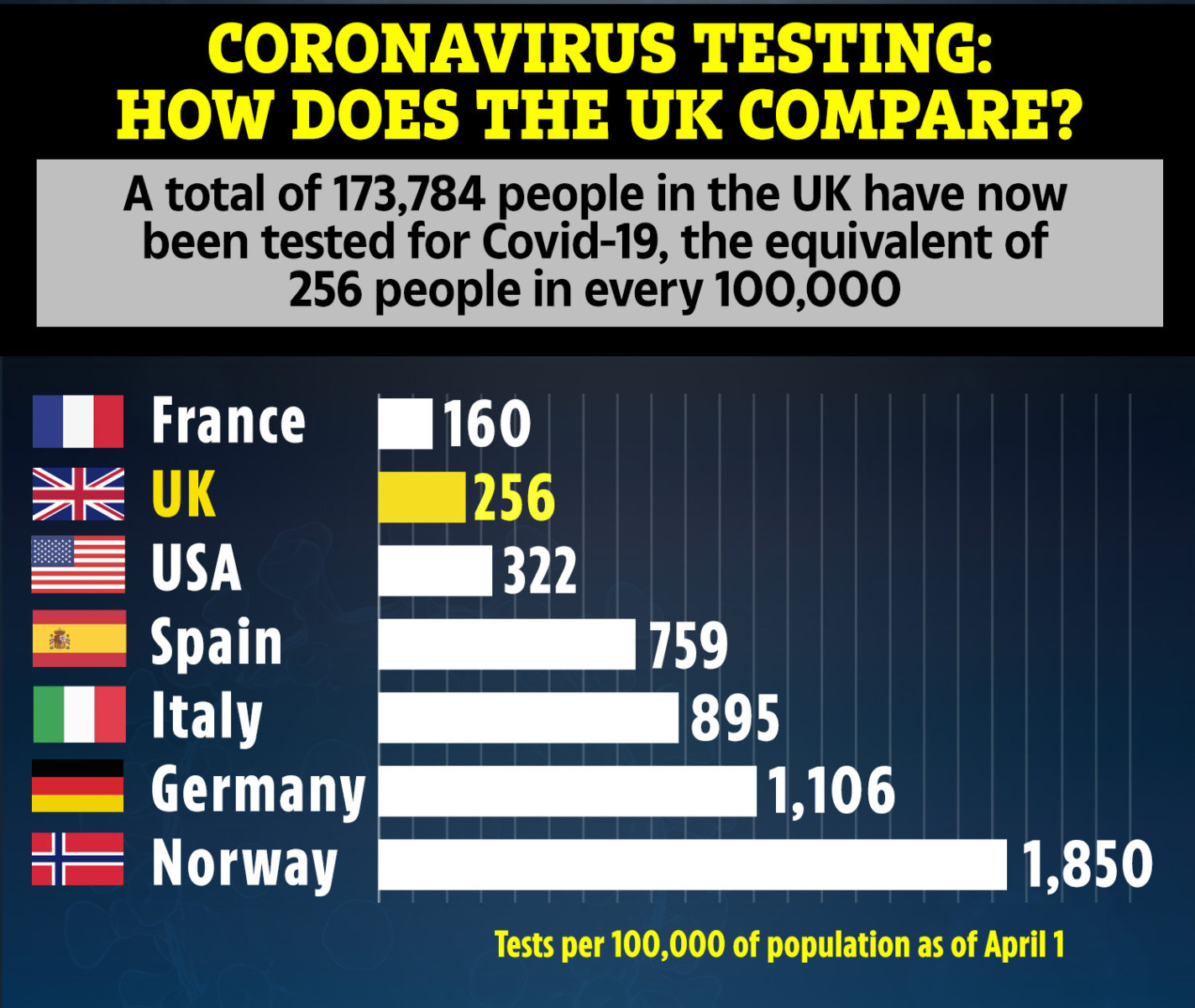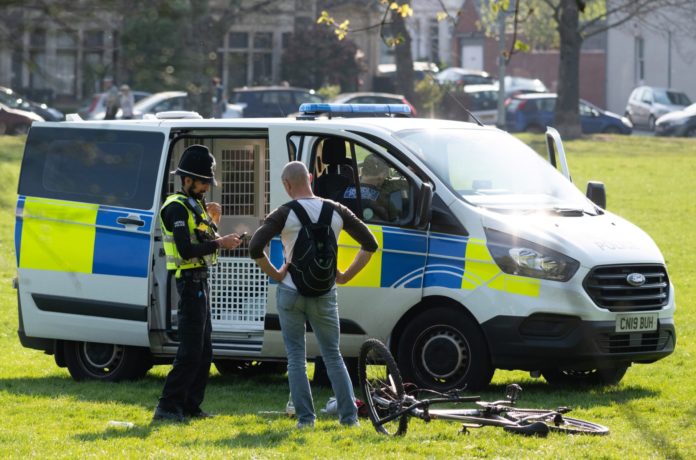As Britain enters its fourth week of lockdown, Dominic Raab has said they don’t expect any changes to be made this week, setting the scene for the lockdown to carry on into May.
But last night he claimed that the nation-wide shut down was working, and experts predicted that the number of cases and deaths would start to plateau in the coming weeks.
There were “positive signs” that the UK was beginning to “win this struggle”.
Work is ongoing in Whitehall on how to eventually get Britain back to normal, but it’s expected that some measures could be in place for weeks or months to come – or until a vaccine is widely available.
Work and Pensions Secretary Therese Coffee said this morning: “We know this is going to take months to really win the war on coronavirus.”
One Government source told the Daily Telegraph: “No one is talking about an exit strategy any more. They are talking about emerging from the lockdown, which signals a more gradual process.
“You don’t exit viruses. That hasn’t happened in all human history. They stay around, so we will be looking very closely at what happens in other countries that are ahead of us in the curve when they start to lift their own restrictions.”
“We have to take the public with us, by unwinding the social distancing measures rather than stopping them suddenly, and it’s up to us to make the case for it.”
Ministers face the challenge of trying to prevent a second wave if they act too quickly, but risk seeing the economy completely grind to a halt if they wait too long.
Here are some of the options for lifting Britain’s three-week long shut down when the Government feels the “evidence” will show it’s safe to do so.
RE-OPENING SCHOOLS
Experts said in a study last week that the impact of closing schools on the spread of coronavirus was small anyway.
Ministers were expecting around a fifth of pupils to stay in school – just those of key workers – but in fact just 2 per cent are there at the moment.
As parents struggle to work from home with their kids around and help them keep up with homework, going back to school would be a welcome first step for many to try and get back to some kind of normal.
ALLOWING MORE SHOPS TO OPEN
At the moment only food shops, DIY stores, banks and several other forms of “essential” shops are open.
The Government’s first step could be allowing more shops to return to normal – if they can try and keep some form of social distancing.
Clothes and charity shops or other retailers could be added to the list of shops that are permitted to open their doors again and get back to normal.
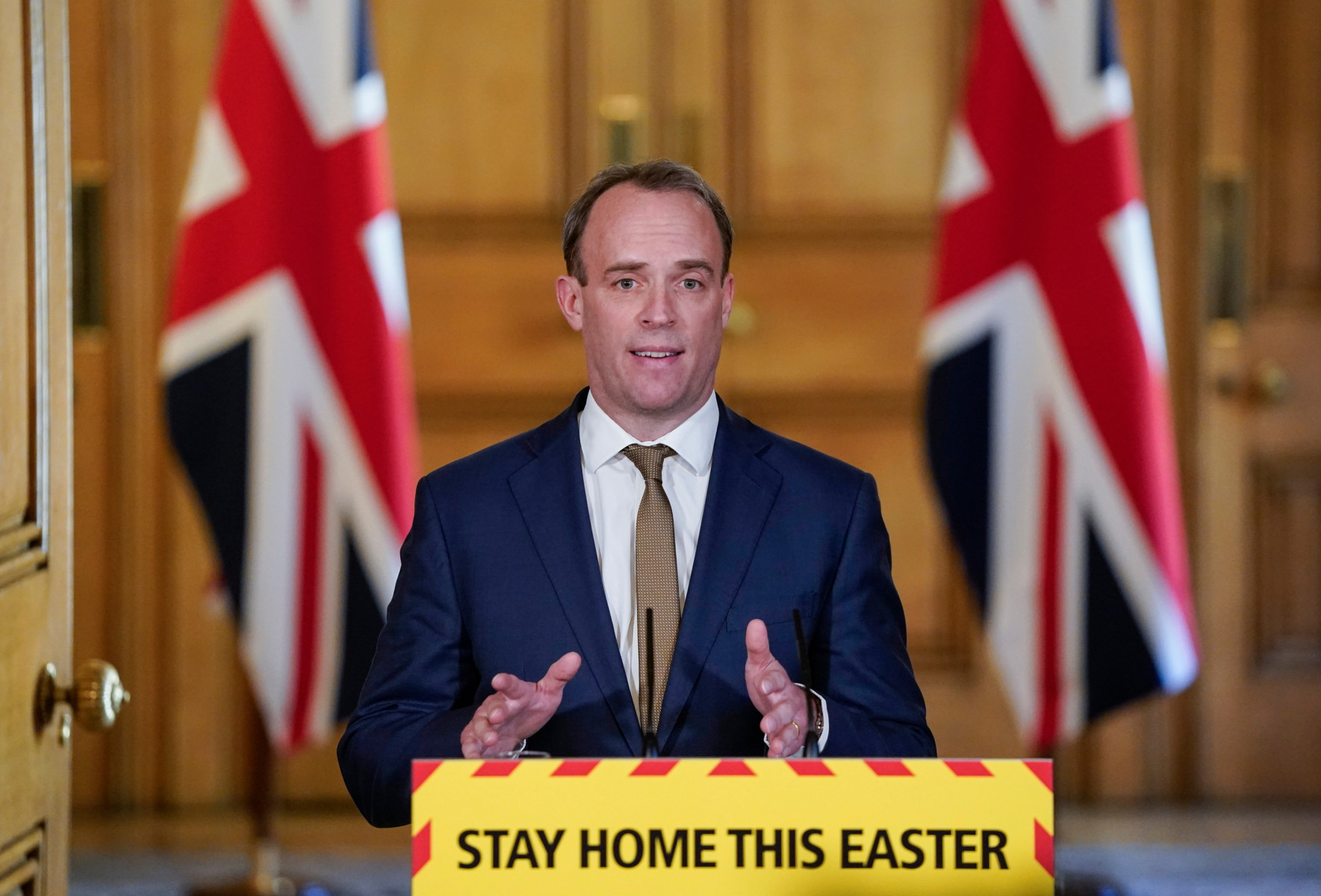
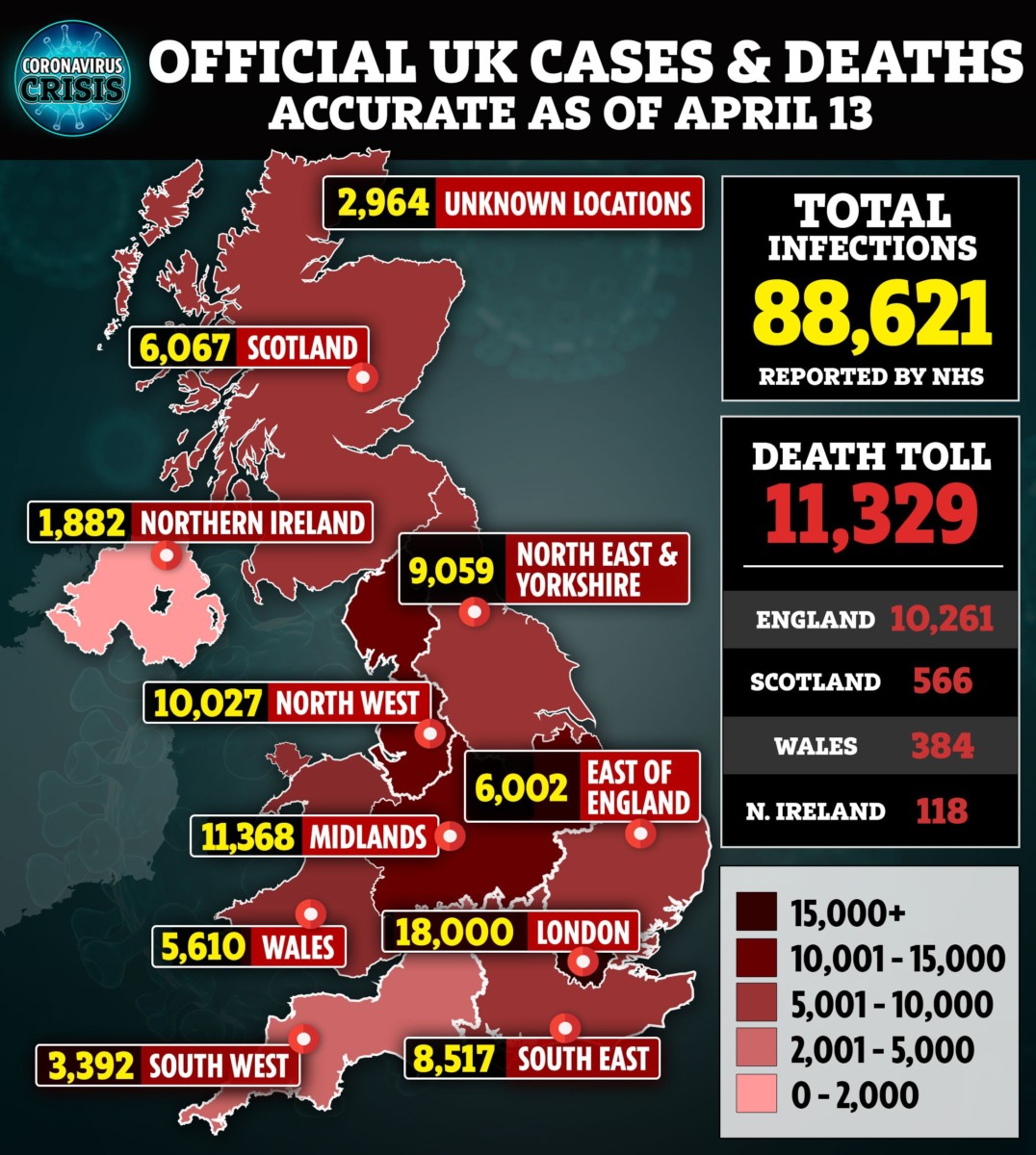
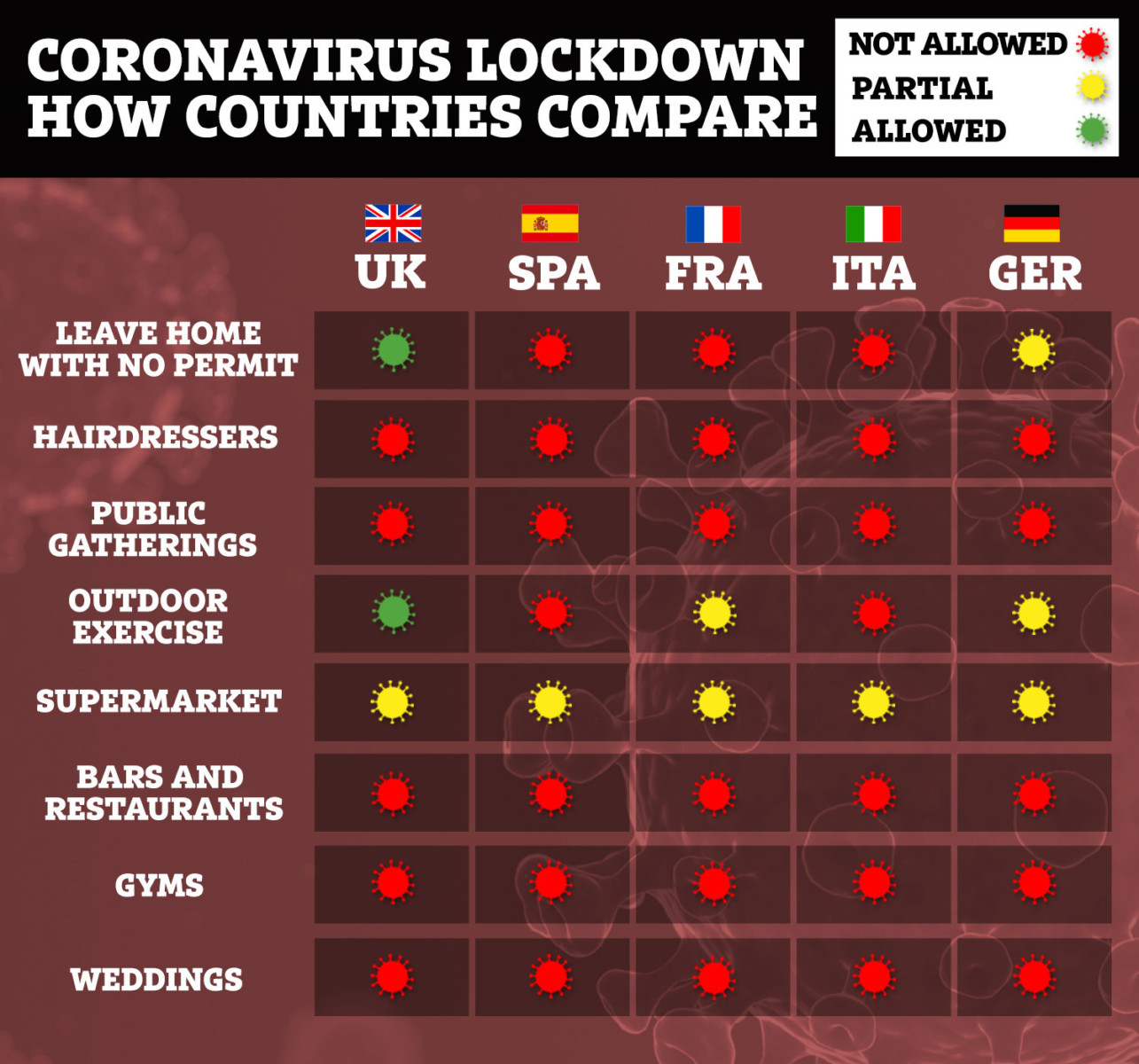
LETTING YOUNGER PEOPLE OUT
As younger people are less at risk from becoming seriously ill from the virus and are less likely to have enough savings to weather out the crisis, some experts have said younger people should be allowed to return to normal life first.
When coronavirus social distancing restrictions can be softened, they reckon 20-30-year-olds who no longer live with their parents should be released first.
They are also more likely to be working in sectors where they can’t work from home, and will rely on the economy opening up again for them to continue to work.
FREE THOSE WHO HAVE HAD THE BUG
Britain is still searching for an antibody tests to show whether people have had the bug in the past.
It’s hoped that once people have had it, they will be immune and not able to catch it again.
If that’s proven and a reliable test can be found, the Health Secretary has said he would look at issuing immunity certificates or wristbands – to allow people who have had the illness and recovered to go out safely.
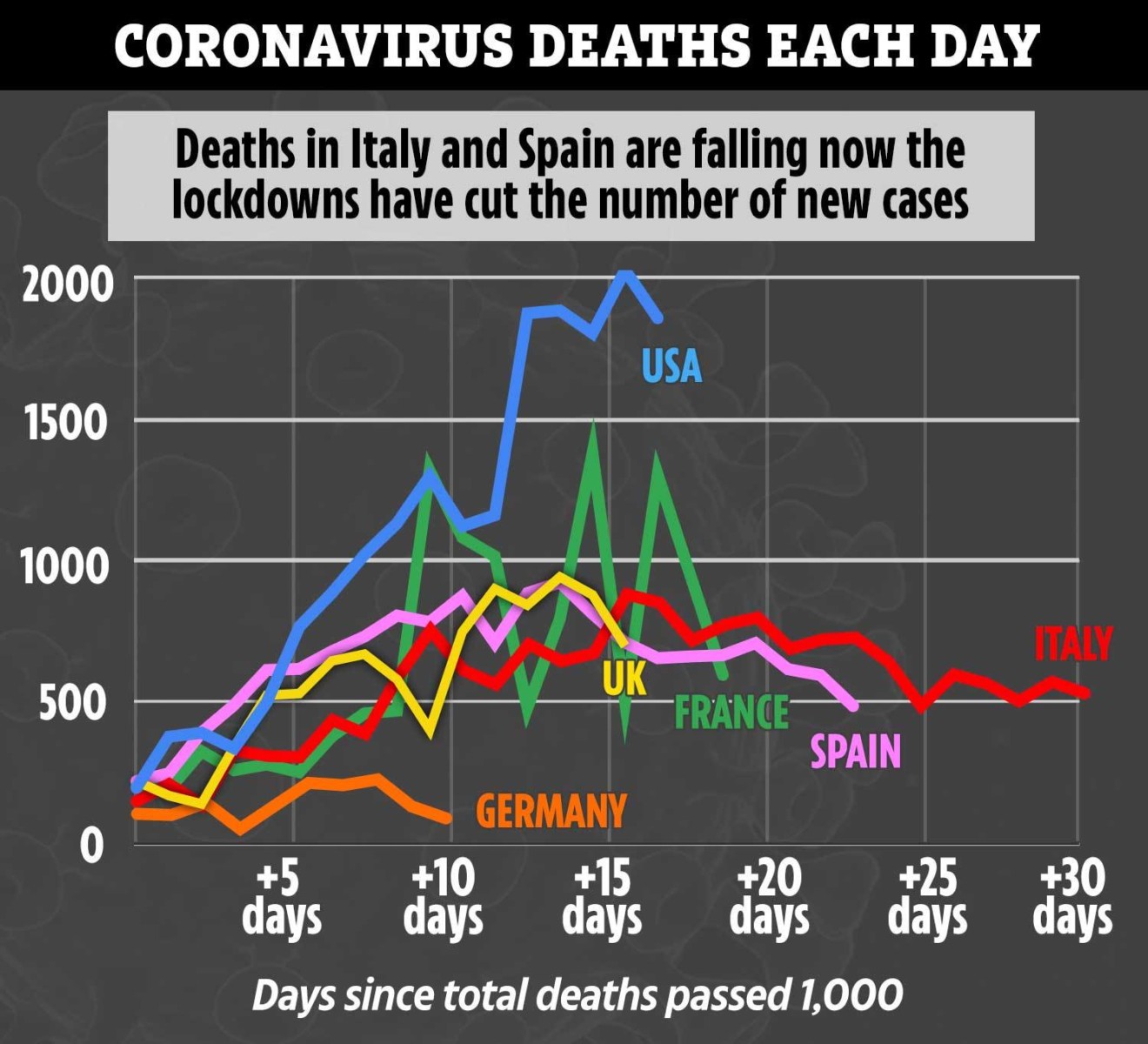
RELAXING RULES ON WORKING
Some sectors could be allowed to go back to work first – including non-essential manufacturing and construction.
Any jobs where people can show they can safely work apart are more likely to be able to start up again.
GATHERINGS OF MORE THAN 2
Even if Britain’s rules don’t allow for non-essential travel at the moment, Britain could relax rules on gatherings of more than two people.
It could allow neighbours or friends and family to visit each other in small numbers, while keeping risks to a minimum.
GOING OUTSIDE THE HOME
At the moment Brits are only allowed out for exercise, to get food, medicine, or take care of a vulnerable person.
The Government could relax that by agreeing that people are able to go outside their own homes, and don’t need a reason to be able to do so.
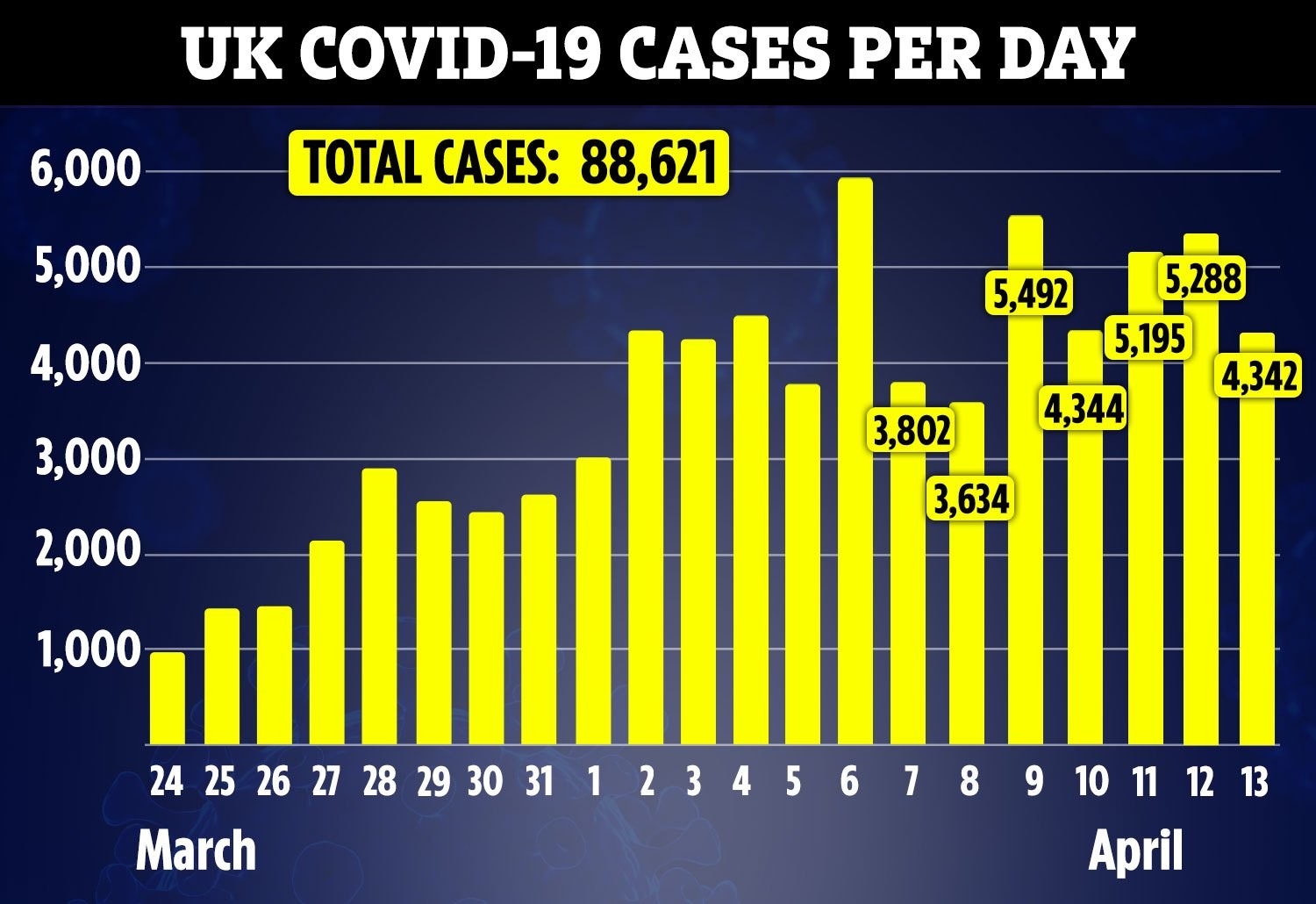
RE-OPENING PUBS, RESTAURANTS AND LARGE GATHERINGS
This is likely to be the very last stage of the lockdown ending – and won’t be on the cards anytime soon.
Any events where people are packed in close spaces are likely to be put off until the number of cases has considerably dropped.
To start with, pubs or restaurants could open again as take-away only – as some did in the early stages of the lockdown.
Or sports matches could be played behind closed doors – with fans able to watch on TV instead.